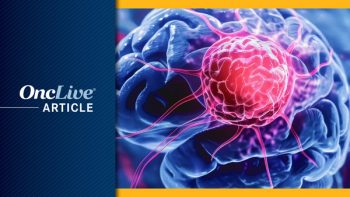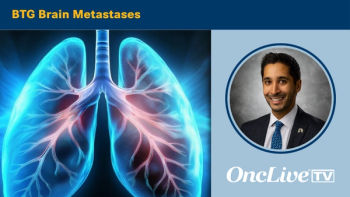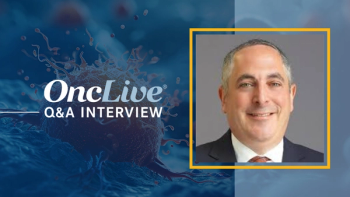
ERC1671 Immunotherapy Shows Early Promise in Recurrent Glioblastoma
The investigational immunotherapeutic ERC1671 in combination with granulocyte-macrophage colony-stimulating factor, cyclophosphamide, and bevacizumab showed promising activity in patients with recurrent glioblastoma.
The investigational immunotherapeutic ERC1671 (Gliovac) in combination with granulocyte-macrophage colony-stimulating factor (GM-CSF), cyclophosphamide, and bevacizumab (Avastin) showed promising activity in patients with recurrent glioblastoma, according to the interim results from a phase 2 trial (NCT01903330).
Results from the first 10 patients in the study showed a 6-month overall survival (OS) rate of 100% in those treated with the immunotherapy. Moreover, the 12-month OS rate in the investigational arm was 40% and the median OS was 10.5 months. These findings compare favorably with historic controls which have shown a 6-month OS rate of 33% and a median OS of 5.3 months.
These findings illustrate a “highly significant” increase in OS with ERC1671 compared with current clinical practice (log rank test, P < .0001), according to ERC Belgium, the developer of the agent.
Moreover, 10% of those on the investigational arm experienced total recovery and survived longer than 3 years when treated after disease recurrence and after having received standard-of-care treatment. No spontaneous remissions were reported in the control arm; all participants who received bevacizumab alone experienced tumor progression.
Notably, a subgroup of participants who had progressed on treatment with bevacizumab were found to experience a disproportionate benefit with ERC1671, one that translated to a doubling of survival versus historical controls, according to the clinical-stage biopharmaceutical company.
“Prior to this study of ERC1671 immunotherapy for recurrent glioblastoma, it was almost unknown for such patients to experience recovery,” Daniela Bota, MD, PhD, principal investigator of the phase 2 trial; vice dean for clinical research; medical director of the UCI Center for Clinical Research; director of the UCI Alpha Stem Cell Clinic; and medical director of the UCI Health Comprehensive Brain Tumor Program, stated in a press release. “We are excited to accelerate recruitment and complete this study.”
ERC1671 is based on freshly extracted tumor cells and lysates and it was designed to stimulate the immune system to recognize and reject cancer cells. The advanced immunotherapy is comprised of a combination of autologous and allogeneic tumor cells, which are produced from the glioma tumor tissues of 3 different donor cancer patients, and the lysates of these cells. Once injected, it arouses the immune system to respond against tumor cells and kill them.
In the double-blinded, placebo-controlled phase 2 trial, investigators set out to examine ERC1671 plus bevacizumab in patients with relapsed glioblastoma. A total of 84 participants were randomized 1:1 to receive either the immunotherapy plus GM-CSF and cyclophosphamide or placebo plus bevacizumab.
ERC1671 and GM-CSF was administered intradermally, while cyclophosphamide was given via the oral route. GM-CSF was administered at a fixed dose of 500 mcg and cyclophosphamide was given at a daily dose of 50 mg. Bevacizumab was administered as standard of care, at a dose of 10 mg/kg. The treatment will be repeated every 28 days until either disease progression or intolerable toxicity.
To be eligible for enrollment, patients had to have a histologically confirmed diagnosis of recurrent or progressive World Health Organization grade IV glioblastoma or gliosarcoma, be 18 years of age or older, have a Karnofsky performance score of 70% or greater, a life expectancy of 12 weeks or longer, and be in first or second relapse of glioblastoma. Prior treatment for their disease must have included surgery, conventional radiation therapy, and temozolomide.
Patients were excluded if they were unable to undergo an MRI with contrast; if diffuse leptomeningeal disease was present; if they had a history, presence or suspicion of metastatic disease; if they received immunosuppressive agents less than 2 weeks before the first dose of the study treatment, if they previously received bevacizumab or other VEGF inhibitors, and if they had a known contraindication or hypersensitivity to bevacizumab.
The primary end point of the trial was OS at 12 months, while key secondary end points included progression-free survival, immune response, percentage of grade 3-5 adverse effects, and the rate of radiographic response per MacDonald criteria or IRANO.
“We are encouraged by such strong results for ERC1671 in Dr Bota’s study and pleased to see a high number of patients going into remission,” Apostolos Stathopoulos, MD, PhD, added in the release. “We believe that ERC1671 is finally leading the way for immunotherapy to treat intractable cancers like recurrent glioblastoma that currently do not have alternative therapeutic options.”
Reference
- ERC announces interim results from phase 2 trial of immunotherapy ERC1671 in recurrent glioblastoma patients. News release. ERC Belgium. August 19, 2020. Accessed August 26, 2020.
https://bwnews.pr/3b08sJH .




































